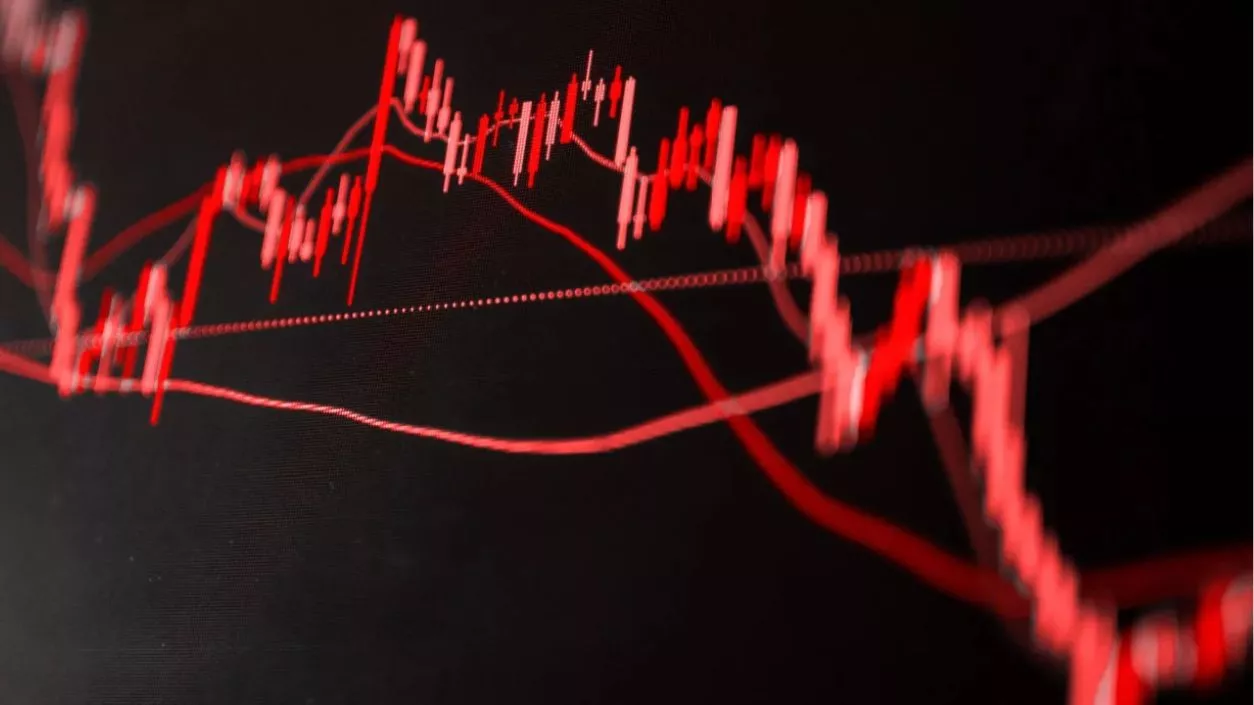.gif)
.gif)

Indian benchmark indices saw a sharp decline on Tuesday, with the BSE Sensex plunging 1,148 points (1.48%) to 76,266 and the Nifty50 dropping 274 points (1.16%) to 23,242 at around 10:59 AM. This marked a significant setback for the market, driven largely by losses in banking and IT stocks. Investors were concerned about the uncertainty surrounding US President Donald Trump's impending tariff announcement, which had a global ripple effect on equities.
The IT sector was one of the hardest hit, with Infosys dropping 2.86% to Rs 1,525, making it the worst-performing stock on the Sensex. Other IT giants, including HCL Tech, TCS, and Tech Mahindra, saw losses of up to 2.4%. The decline in IT stocks was attributed to fears that US tariff changes would negatively affect earnings, especially as concerns about slowing recovery in discretionary spending have been mounting. The pressure on the banking sector was equally significant, with private sector banks such as HDFC Bank and Axis Bank falling 2.3% each.
The sell-off in banking stocks comes after a period of outperformance due to the "flight-to-safety" narrative. While the banking sector had previously benefitted from investors seeking refuge amid global uncertainties, the current drop reflected concerns about potential headwinds. Despite this, analysts from Kotak Institutional Equities noted that asset quality concerns in the banking sector appeared to be less severe than initially feared, with recoveries being seen in unsecured loan segments.
Trump's tariff policy has been a key point of concern in global markets, particularly ahead of his April 2 "Liberation Day," when the US is expected to impose reciprocal tariffs on several countries, including India. Investors have been wary of the potential impact on various sectors, particularly pharmaceuticals. As stated by Nomura, Indian pharma stocks have underperformed in recent weeks due to fears that the new tariffs could hinder earnings for generic drug companies. These concerns have contributed to a broader market sell-off, with pharmaceutical companies among the laggards.
The energy sector also saw volatility, with crude oil prices rising by 2% amid concerns about potential supply disruptions. Brent crude surged $1.11 (1.5%) to settle at $74.74 per barrel, while US West Texas Intermediate (WTI) crude gained $2.12 (3.1%) to close at $71.48 per barrel. These developments are tied to geopolitical tensions, with the possibility of increased tariffs on Russia and potential military actions against Iran, which could disrupt global oil supply.
On the currency front, the Indian rupee weakened by 32 paise to 85.47 against the US dollar in early trade. This depreciation was in line with the broader market sell-off, reflecting investor apprehension. Meanwhile, foreign institutional investors (FIIs) remained net sellers, offloading equities worth Rs 4,352 crore on March 28. Domestic institutional investors (DIIs) continued their buying spree for the second consecutive day, purchasing Rs 7,646 crore worth of equities, partially offsetting the selling pressure from FIIs.
The market remains highly sensitive to global developments, and the coming days will be crucial in determining the direction of both global and Indian equities. Investors are closely watching Trump's tariff policies for more clarity, which will likely have a significant impact on the market's short-term movements.